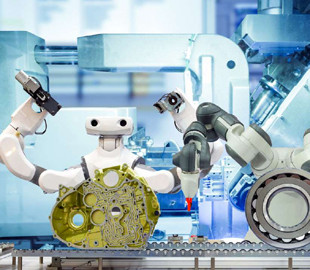
Quantum robotics, which combines classical and quantum computing, promises to significantly enhance the cognitive capabilities of robots and their adaptation to complex tasks.
The prospects for the development of robotics using quantum computers open up the possibility of creating machines with human cognitive abilities. According to an international study, the use of the laws of quantum mechanics will allow robots to process large amounts of information in real time, quickly adapt to changes and even demonstrate human-like behavior. As the study notes:
“The prospect of combining quantum computing and artificial intelligence portends impressive computing power and human-level intelligence”.
The main directions of the development of quantum robotics include improving the navigation, decision-making and accuracy of robots using quantum algorithms. The integration of quantum methods into system design is also being explored, in particular the use of quantum communication and quantum modules for complex computational processes. At the same time, classical modules will perform routine tasks and ensure integration with the existing infrastructure. This approach provides a harmonious combination of complexity and efficiency of machine operation.
The use of quantum algorithms allows robots to better navigate in space, make decisions faster and perform tasks with high accuracy. In addition, thanks to quantum communication, robots will be able to exchange information more securely and quickly. This significantly increases the prospects for their application in areas requiring high data processing speed, such as autonomous transportation, medicine, and space exploration.
Despite significant potential, the development of quantum robotics is hampered by technical limitations associated with hardware and insufficient development of software for quantum systems.

